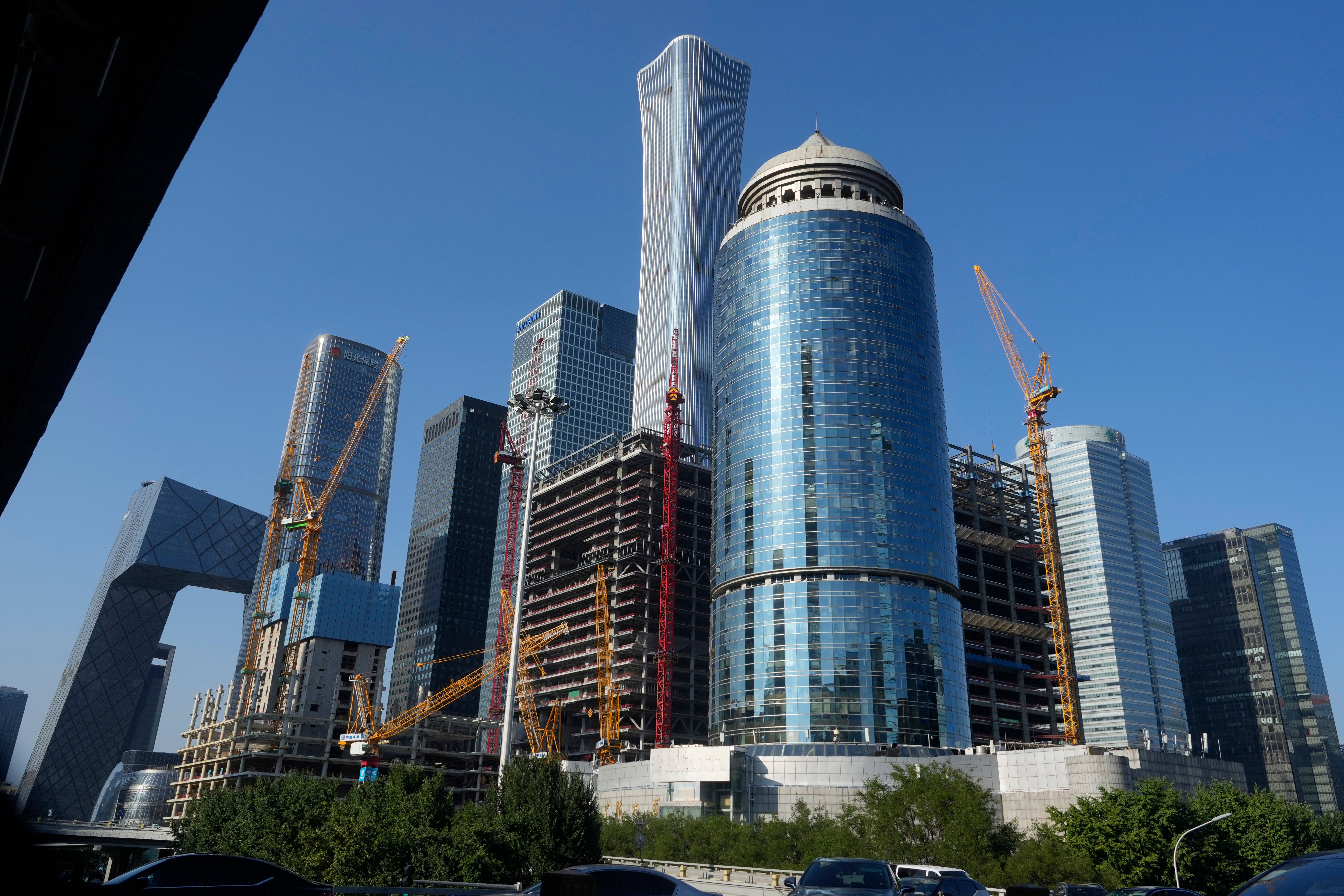China's central bank cuts bank reserve rates, pledges other moves to help the economy
The Chinese central bank has reduced the amount of reserves banks are required to keep, among other moves it is rolling out to help revive the slowing economy

The Chinese central bank announced Tuesday a slew of measures aimed at reviving the sluggish economy, mainly by tackling a downturn in the property sector.
People’s Bank of China Gov. Pan Gongsheng said the reserve requirement for banks would be cut by 0.5 percentage points and that the central bank would follow up with further cuts. That would free up more money for lending.
The news lifted share prices, especially for real estate developers. Hong Kong's Hang Seng index jumped 2%, while the Shanghai Composite index was up 0.8%.
The central bank plans new policies to support stable development of the stock market, Pan told reporters in Beijing.
He also said down payment requirements for buyers of second homes would be reduced to 15% from 25% and that mortgage rates would be cut by about 0.5% .
That would help 50 million households and 150 million people, reducing household interest expenses by an average of about 150 billion yuan ($21 billion) a year, he said.
The latest moves to support the economy mainly center on addressing a crisis in the housing market after authorities cracked down on excessive borrowing by developers, leading many to default on their debts.
Housing is a main form of investment in China and it also supports many other industries, such as construction, home decorating and home appliances, among others.
Regulators have avoided the kind of massive government spending stimulus Beijing used in the past to rev up growth, wary of creating a property market bubble. But disruptions and job losses during the COVID-19 pandemic, coupled with falling prices for homes have left many Chinese unwilling or unable to spend, sapping the economy of other engines driving business activity.
The economy grew at a 4.7% annual rate in the last quarter after expanding 5.3% in the first three months of the year. Recently, Chinese leader Xi Jinping urged officials to do more to get growth back on track.
“Given President Xi’s recent call for policymakers to strive to achieve the growth target, we’ve been expecting increased urgency for policy support rollout,” economists at ING said in a report.
___
AP researcher Yu Bing in Beijing contributed.
Bookmark popover
Removed from bookmarks